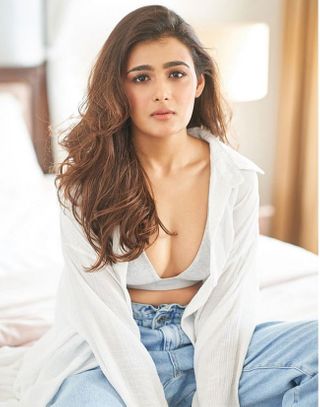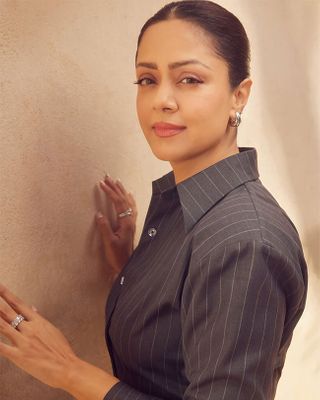Vanity Fair Movie Review
Mira Nair's adaptation of William Thackeray's "Vanity Fair" proves to be a fairly disappointing experience.
It isn't really the poor director's fault. She has done some amazing opening up of the original plot, including a chunk of the narration in India where the wretchedly lovelorn William Dobbin (Rhys Irfan) suffers ostentatiously from unrequited love.
But we suffer Nair's mix of exotica and elephants in Rajasthan. Oh yes, we suffer. If as William Thackeray had declared, there are no heroes in "Vanity Fair", I'm afraid there are no heroes in Mira Nair's adaptation either, not even screen writer Julian Fellowes who tries to give a contemporary twist to protagonist Becky Sharp's sharp-witted attempts to go beyond her socio-economic karma.
As played by Reese Witherspoon, Becky comes across as distinctly unpleasant, surly and churlish. Not a good daughter, governess, beloved, wife or dancer - in that order.
Hey, is that Becky's fault or is it Witherspoon's?
Not for a second do we feel any sense of empathy towards this self-serving woman whom her best friend Amelia's mother shrewdly describes as a mountaineer among social climbers.
In a very cross-cultured, cosmopolitan way, Becky reminds us of Rabindranath Tagore's Binodini, so luminously portrayed by Aishwarya Rai recently in Rituparno Ghosh's "Chokher Bali".
Both the 19th century heroines are cunning survivors who use their minds and bodies to get influential men.
Mira Nair, who was wonderfully unfettered and at-home doing street children, Punjabi weddings and Nairobian immigrants in "Salaam Bombay", "Monsoon Wedding" and "Mississippi Masala", is way out of her depth doing the hypocrisies of the British upper class.
The characters, including our heroine Becky Sharp, are uniformly caricature-like in their acquisitive impulses. Veteran actors like Bob Hoskins and Jim Broadbent as pitiably cash-strapped aristocrats give violently broad performances.
Layer upon layer of ruse and rouge is applied to bring alive Thackeray's England to flickering life. Even though the ambience is seductively recreated, the storytelling falls apart in the condensation and the frequent alterations in the original text.
Why are the characters so authentic in dress, manner and speech and so empty at heart?
Sure, we enjoy the acerbic pot-shots at British aristocracy. When the caddish soldier George Osborne (Jonathan Rhys-Meyers) says no to marriage with a nouveau-riche girl of dubious breeding, his father (the marvellous Jim Broadbent) sneers, "Hoity-toity, are we? What's a bit of mixed breeding when there's so much money to go with it?"
Reese Witherspoon's bed-hopping social climbing rings hollow. Though she functions within a milieu that's 19th century English, her ambitions seem justifiable by her desire to avoid the low life.
In "Chokher Bali", the heroine has an affair with her best friend and benefactor's husband to preserve her self-regard. Fortunately, Becky Sharp doesn't jump into bed with her best friend Amelia's vain husband Osborne. But the bond that the two women forge repeatedly reminded me of Aishwarya Rai and Raima Sen in "Chokher Bali" - the same contrast between savvy and naiveté.
Even though their lives run together, Amelia's story is told almost parallel to Becky's.
I think the feeling of deep disappointment after watching "Vanity Fair" comes from the director's familiarity with the original text which make her move ahead of both the characters and the audience.
There's no feeling of discovery or revelation in viewing "Vanity Fair". Whether at war on the battlefield or in the bedroom, Nair's characters appear to be struggling to appear true to the text, context and climate.
This is not to say that there are no pockets of lyrical lushness in the plot. The portions where Becky latches on to a long forgotten and needless to say, rich benefactor (Gabriel Byrne) to get her married life out of the poor house, reveal the direct










